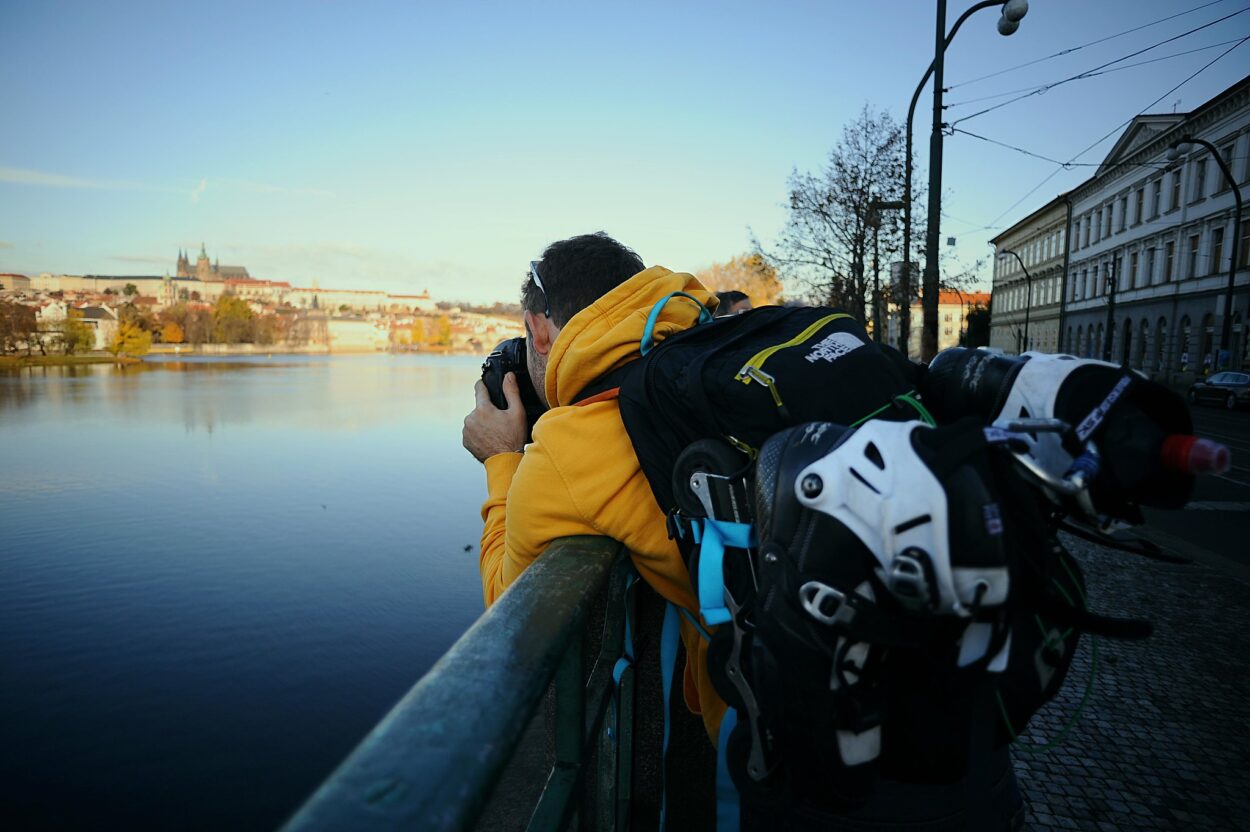Learn how to create a practical and effective travel budget with tips on managing expenses, prioritising experiences, and making the most of your savings for a stress-free trip.

A back-packer taking photos across a river (Photo: Bianca Dagheti via Flickr / CC BY-ND 2.0)
Planning a travel budget may seem like a daunting — not to mention laborious — task, but the the simple reality is that it’s one of the best ways to ensure you have a worry-free time away that is optimised to what you want to get out of the experience. To put it in a nutshell, taking the time to assess your expenses upfront not only prevents financial stress but also helps you maximise your travel by directing your resources toward what truly matters to you without second-guessing your finances. Check out our top strategies below to help you get started on creating a budget that works for your next adventure.
Save smarter to travel better
Building up your savings can be one of the most effective ways to increase your travel budget. By making smart choices with where you store your funds, you can earn more on your savings, helping you set aside extra cash for your next adventure. For example, SoFi.com is currently offering a high-yield savings account with an APY of up to 4.20%. This is a great way to grow your savings without any risk, meaning you can see your travel funds accumulate faster, ultimately allowing you to enjoy a more comfortable trip or explore more options when you’re on the road.
But saving smartly doesn’t have to start and end with finding a generous savings account: you can also optimise your budget by setting yourself clear savings goals and automating contributions as soon as you’ve decided that you’re going to travel. We’d recommend picking a target amount based on your destination, duration, and preferred travel style, then set up automatic transfers to your savings account each month. Even small, regular deposits can add up quickly, especially with the added benefit of earning interest.
Unpacking the hidden costs of travel
When budgeting for a trip, many people tend to focus mainly on the big-ticket items like flights and accommodations, but the real expenses often sneak in elsewhere. Day-to-day essentials such as food, local transport, and entrance fees to attractions can quickly add up. It’s easy to overlook these smaller costs, but taking the time to research them ahead of time can help you avoid surprises and better manage your spending. Knowing what to expect for things like meals, public transport, or the cost of popular tourist sites can give you a clearer picture of how much you’ll need, allowing you to plan accordingly.
Another factor that often goes unnoticed is currency fluctuations, especially when traveling to countries with volatile exchange rates. A sudden change in the currency value can make a significant difference in your overall expenses. To avoid being caught off guard, it’s helpful to check the exchange rates just before you travel and adjust your budget if necessary. By staying informed and building some flexibility into your financial plan, you’ll have a better chance of sticking to your budget and ensuring that your trip remains affordable.
Aligning your budget with your travel goals
Everyone get something a little different out of travel – and your budget should reflect your own individual travel style and priorities. Whether you’re crafting an itinerary for a lavish escape, planning a more budget-conscious journey, or a minimalist adventure focused on life’s simple pleasures, it’s important to adjust your spending to match your priorities. For instance, if gourmet dining is a top priority for you, setting aside a portion of your budget for memorable culinary experiences can help make that possible. Or, if extending your trip or taking part in more activities is what you value, finding affordable accommodations and transportation options can free up extra cash for other activities.
As you prep your trip, have a think about where best to allocate your resources. Do you want to splash out on high-end accommodation, or would you favour a basic, budget-friendly hostel that leaves room for other things? Should you invest in guided tours to get a more in-depth sense of the local culture, or focus on solo exploration? Weighing up what matters most to you will allow you to adjust your budget effectively.